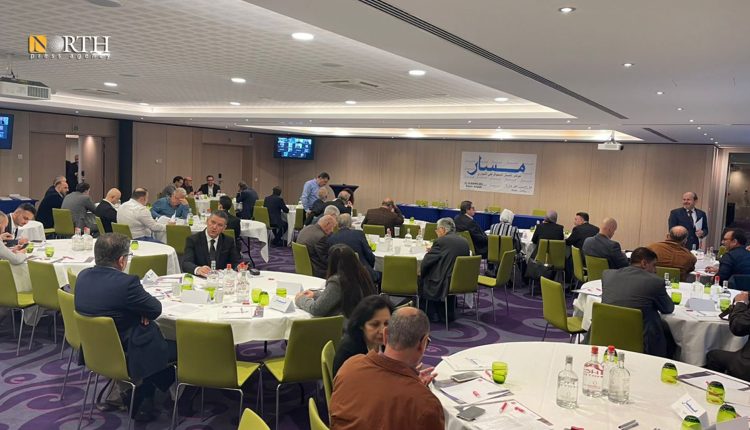The Syrian Democratic Path Conference (SDPC), held in Brussels on October 25–26, 2024, represents a significant effort to shape a unified vision for Syria’s future amid prolonged conflict and political fragmentation. The conference sought to address the country’s pressing challenges, including governance, democracy, and the humanitarian crisis, while fostering dialogue among diverse Syrian political and social groups.
The SDPC aimed to create a comprehensive national framework addressing Syria’s political, social, and economic issues. Participants, representing a wide spectrum of Syrian society, emphasized their commitment to revolutionary ideals, independence, and the rejection of both the Assad regime and foreign interference.
The final statement highlighted several key resolutions:
- Invalidating agreements made by the Assad regime with foreign powers, including Russia and Iran.
- Rejecting the Astana and Sochi processes.
- Advocating for a transitional governing body with full executive powers, in line with UN Resolutions 2254 and 2118, ensuring no role for Bashar al-Assad.
- Prioritizing equality, justice, and the establishment of a state based on citizenship, free from discrimination based on religion, sect, ethnicity, or nationality.
The conference concluded with the election of a central leadership, adoption of procedural and political statutes, and a call to address prior shortcomings within revolutionary structures. However, critics have questioned whether the ambitious resolutions can be effectively implemented, given Syria’s deeply fractured political landscape.
Reflections on the Conference
In an article published by Al-Jumhuriya, one of the leading SDPC organizers and leaders, Mouwaffaq Nyrabia, emphasized the three years of preparation leading to the Brussels Conference, including the foundational Stockholm Process. He highlighted the event’s focus on decentralization, secularism, constitutional reform, and inclusivity, particularly emphasizing the role of women and youth in shaping Syria’s future.
Critics like Osama al-Ashour, however, questioned the conference’s impartiality, arguing that it disproportionately reflected the interests of northeastern Syria’s governance structures. Al-Ashour pointed to the influence of the Kurdistan Workers’ Party (PKK) and the Syrian Democratic Council (SDC), raising concerns about autonomy and broader representation. Proponents defended the conference as a genuinely inclusive platform, bridging divides and fostering dialogue among Syrian democrats.
Ali al-Abdullah, a veteran of the Damascus Declaration, offered a more balanced critique. While he commended the clarity of the Syrian Islamic Council’s (SIC) statement, which he compared to the conference’s communiqué, he criticized its narrow focus on majoritarian principles that excluded fundamental freedoms and human rights. His reflections underscored the need for deeper engagement with democratic principles and inclusivity.
Challenges and the Path Forward
The SDPC highlighted both the possibilities and limitations of Syrian dialogue. Discussions around decentralization, inclusivity, and resource management reflected an attempt to address the nation’s deteriorating political and humanitarian landscape.
Despite its accomplishments, the conference faces significant challenges. Critics argue that meaningful implementation of its resolutions requires overcoming entrenched political divisions, addressing allegations of bias, and ensuring tangible outcomes that benefit all Syrians.
The SDPC remains a critical step toward uniting Syria’s fractured opposition and shaping a democratic future. Whether it can transform aspirations into concrete actions depends on the commitment of its stakeholders to confront Syria’s deep-seated challenges and work collaboratively toward lasting solutions.
This article was translated and edited by The Syrian Observer. The Syrian Observer has not verified the content of this story. Responsibility for the information and views set out in this article lies entirely with the author.


